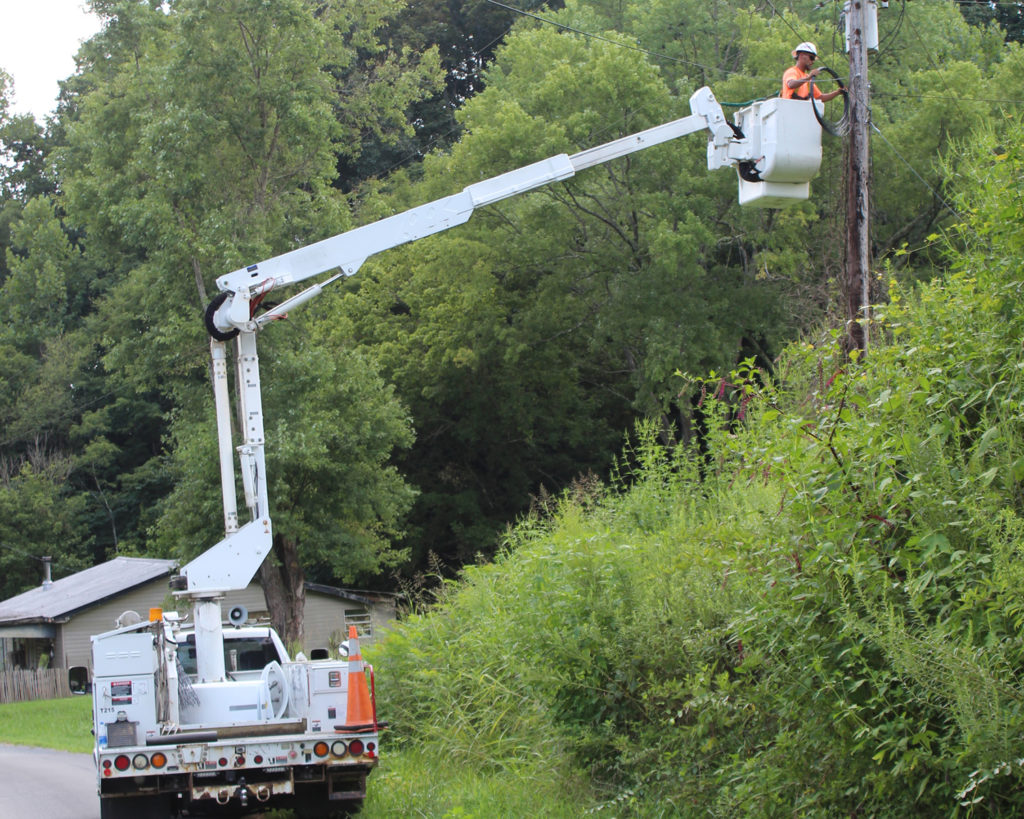
About $40 million in Tennessee COVID-19 emergency grants awarded to electric cooperatives will speed “life-changing” access to broadband internet for thousands in need this year.
Gov. Bill Lee tapped the Tennessee Electric Cooperative Association to help find a way to support prompt construction of high-speed internet service to those most in need using the state’s share of a federal coronavirus relief package passed by Congress in March.
The Tennessee Emergency Broadband Fund was created in early August, and on Aug. 21 it disbursed $61 million to connect unserved or underserved residents. These projects must be completed by Dec. 15 to receive 80% reimbursement on build-out costs.
Ranging from $264,000 for Tri-County Electric Membership Corp. in Lafayette to $7 million for Volunteer Energy Cooperative in Decatur, 13 electric co-ops won 70% of the grants and will finish nearly 30 shovel-ready projects, TECA said.
“When the state asked, ‘Who can build rural broadband quickly?’ they turned to electric co-ops,” said Mike Knotts, vice president of government affairs for the Nashville-based statewide association.
“Tennessee’s co-ops are demonstrating their ability to expand internet access quickly and leverage grant funds for maximum impact,” Knotts said. “These emergency grants will accelerate the expansion of broadband to rural and remote areas and will help 17,000 Tennesseans get broadband by the end of the year when they otherwise would have had to wait for months or years.”
Rogersville-based Holston Electric Cooperative serves financially struggling communities in northeast Tennessee and, like many co-ops, has witnessed “the absolute necessity of robust broadband” to address public health mandates and the closing of schools, offices and even medical facilities, said CEO Jimmy Sandlin.
Its broadband subsidiary, HolstonConnect, will use a $5.6 million emergency broadband grant to boost its buildout in three communities and connect about 2,350 residential and 50 commercial customers by the deadline, he said.
The high bandwidth—with upload and download speeds of 300 megabits per second and buffering delays of less than 5 milliseconds—essentially allows real-time interactions with teachers and classmates or medical personnel, said Sandlin.
“In a lot of cases, serving these rural communities, broadband is literally life-changing,” said Sandlin. “Now, in their home they will be able to access just about anything—education opportunities, job and career opportunities, and have the ability to visit a doctor remotely.
“I’ve often wondered what it was like for those people to get electricity for the first time in the 1920s and 1930s. As we hook up broadband today, we get a taste of that.”
Cathy Cash is a staff writer at NRECA.